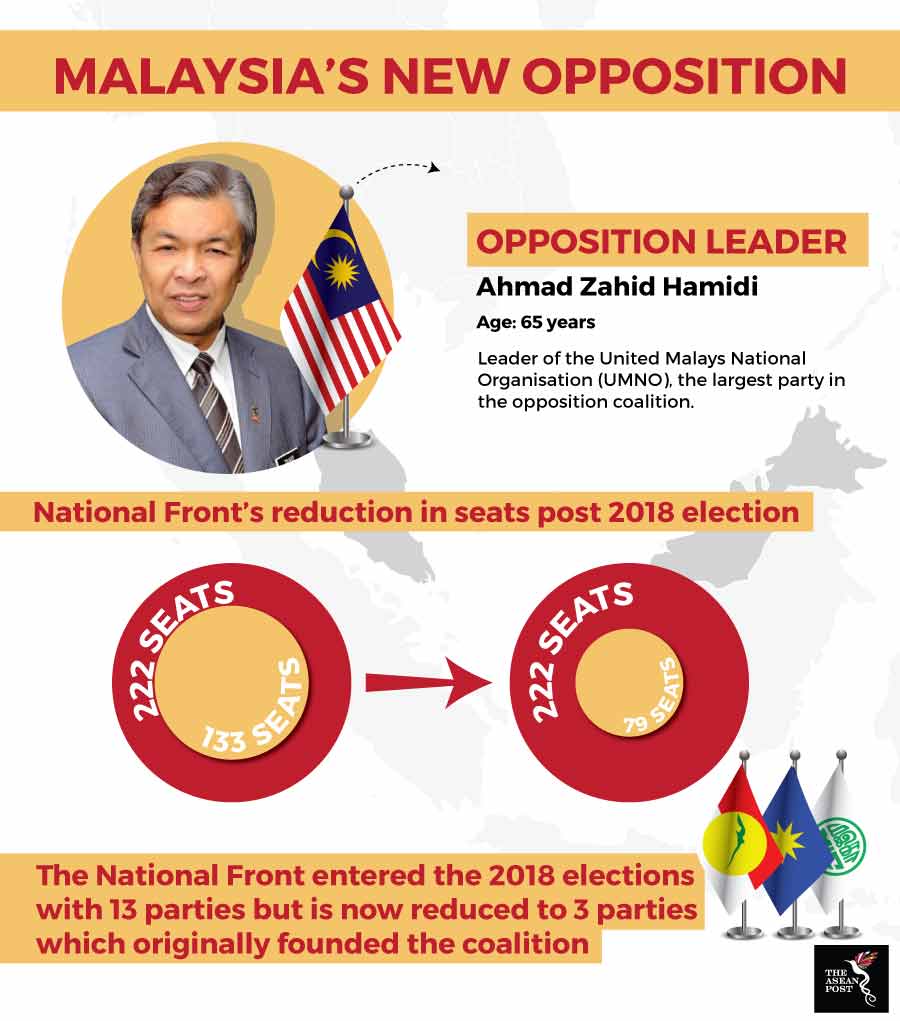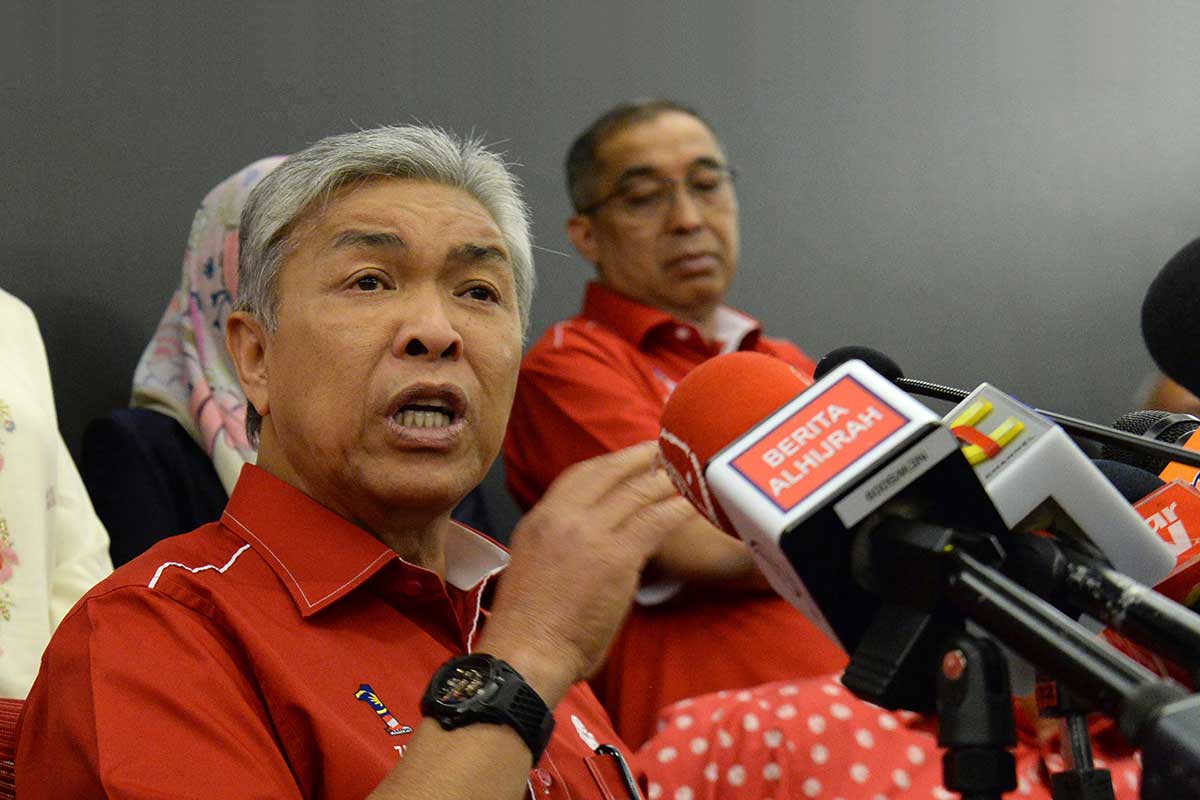After a watershed general election in May, Malaysia’s newly elected government – with many fresh faces – is eagerly at work, buoyed along by strong public support and sky-high approval ratings. However, an unchecked democracy runs the risk of having a government that rests on its laurels – or worse – regresses in its performance.
Opposition to power is just as important as the power to govern itself. Hence, Malaysia’s political future also hinges on the resurrection of a battered National Front (Barisan Nasional) as a renewed opposition coalition, having faced a humiliating defeat after being in power for more than 60 years.
Malaysia’s new leader of the opposition, Ahmad Zahid Hamidi who is also the leader of the coalition’s largest party, the United Malays National Organisation (UMNO) has promised to “keep the new government on its toes,” but himself has to contend with the fractiousness of his coalition in the aftermath of the election loss. The biggest loss for his coalition was the breakaway of several of its partners in the country’s largest state of Sarawak to form a new state-based coalition.
He has also rubbished ideas of forming a shadow cabinet – a common practice in Westminster models of parliament elsewhere where the opposition forms a parallel cabinet that mirror the cabinet positions of the ruling government to scrutinise and offer alternative policies. Besides that, he has also declined to take up the role as chairman of the Parliament's Public Accounts Committee (PAC), which scrutinises Government finances and its use of public funds.
Yang Razali Kassim, Senior Fellow at Singapore based S. Rajaratnam School of International Studies of Nanyang Technological University opined that for the former National Front ruling coalition, being “out of power is not necessarily a bad thing”.
“They can potentially be an effective opposition force that can rely on decades of experience in running the country, although we can debate how optimally effective really they had been while in power,” he said.
“This should be its mission so that overtime there will be an effective check-and-balance system in the country. The question is can it play this role now that it has virtually collapsed post-power?” he added.

Source: Various sources
Solid opposition bloc
As the dust continues to settle, it is unclear if a solid opposition bloc may eventually emerge. UMNO’s recent party elections saw an unprecedented three-corner fight for the presidency which has traditionally been an uncontested position owing to the filial nature of the party. The youngest challenger for the top post, a former minister, Khairy Jamaluddin was touted as a much needed changemaker for the party but after his defeat to Zahid an UMNO veteran, many had consigned the party to the doldrums of history owing to its resistance to change and refusal to accept new blood leadership.
Zahid has an uphill task ahead as the current Malaysian government seems eager to flaunt the mistakes of the past administration, a common practice in politics anywhere.
The UMNO ship has seen some cracks in its hull of late especially with Khairy’s public jabs at the conservative nature and mindset of its current leadership and members. This could point to an inherent divide between conservatives and progressives within the party which was previously unapparent due to a common interest of wanting to be in government.
Since this is no longer the case, the younger and more progressive faction of the party seems increasingly impatient with the archaic mindset of UMNO’s conservatives and are hungering for a change in the party’s collective mindset. Optimists, however, have characterised this as a shift in the openness of the traditionally conservative party, as no internal party disciplinary action has been taken against Khairy for speaking out against its leaders as is usually the case with outspoken UMNO members in the past.
As the country celebrates its 61st year of independence tomorrow, the landscape of Malaysian politics is witnessing a seismic shift between the old guard and the new. The honeymoon days of “New Malaysia” may linger for now but not for much longer. Malaysians will be forced to grapple with harsh economic realities emerging from domestic and external factors going into the new year. This will require not only a competent government, but an equally adept, vocal and critical opposition.
Related stories:
The road ahead for New Malaysia
